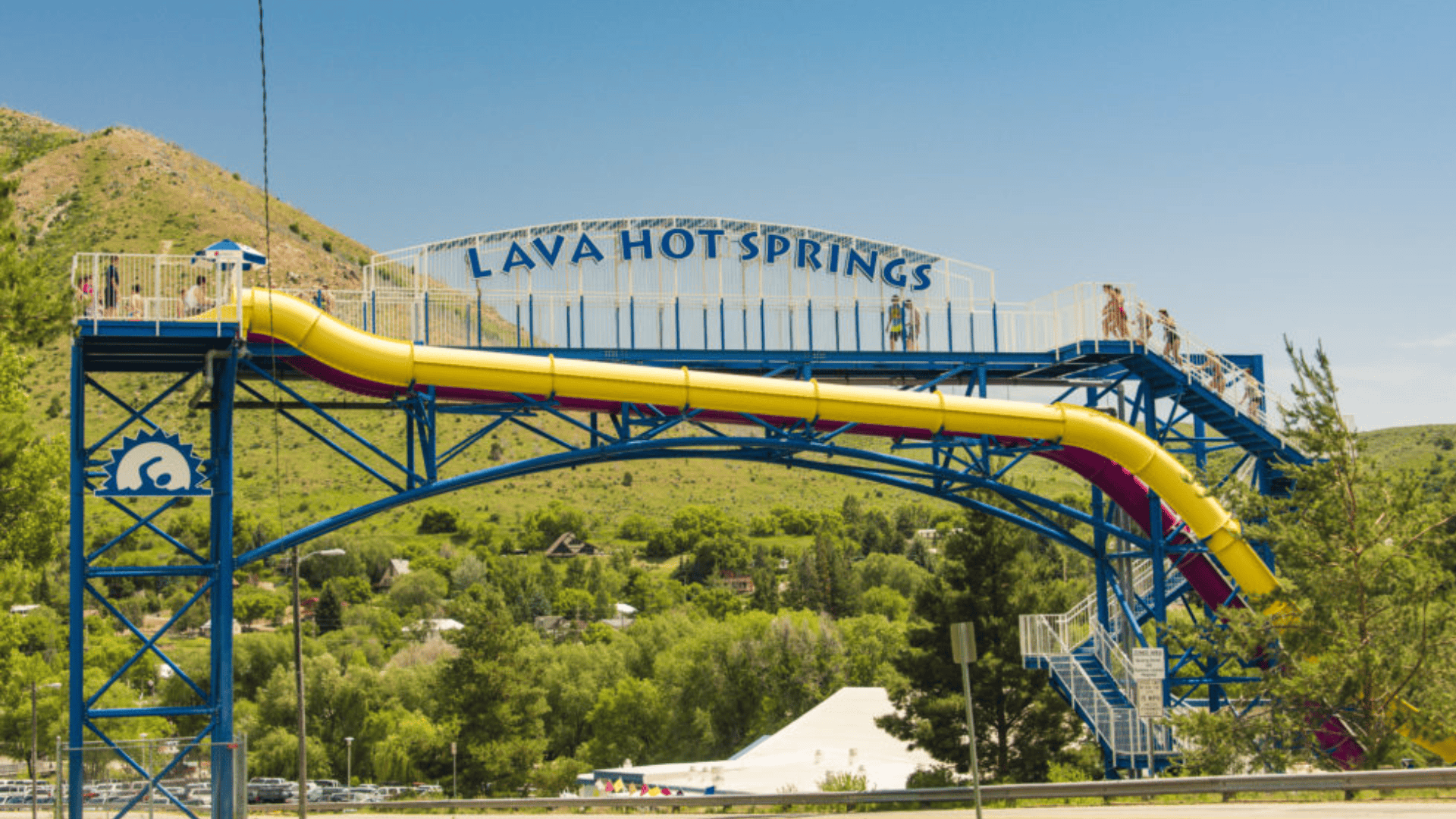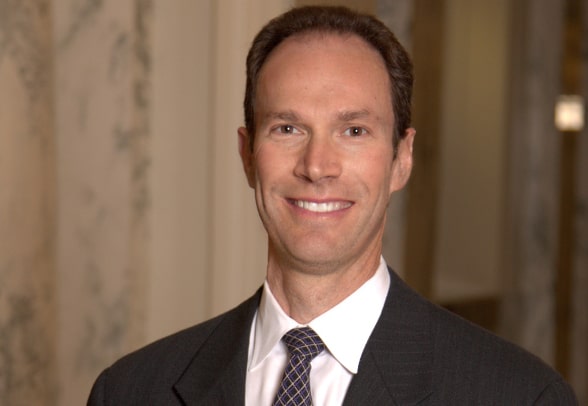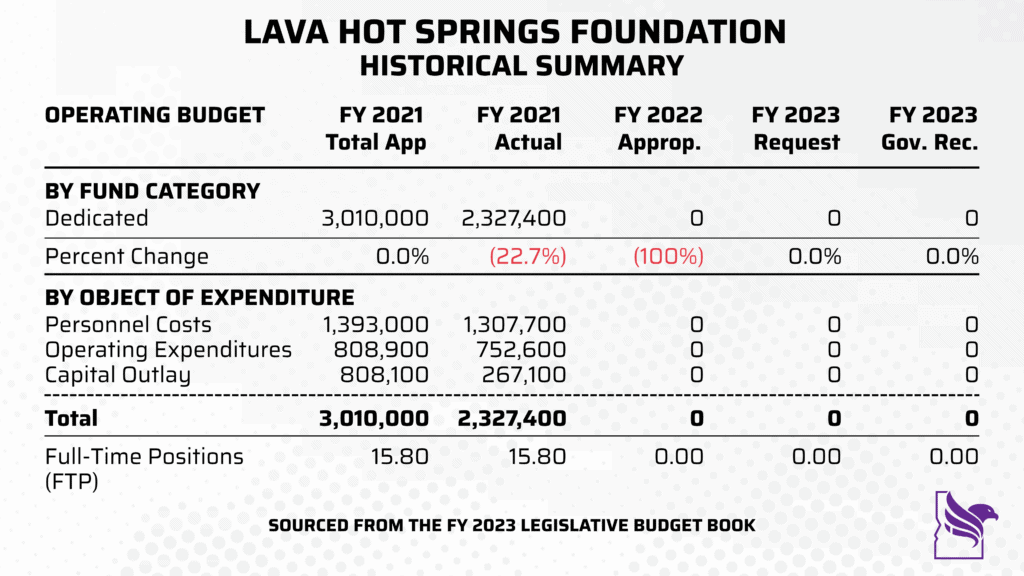



The Joint-Finance Appropriation Committee (JFAC) reviewed continuous appropriations during the recent Spring Interim Meeting. Continuous appropriations are funds that have no set appropriation and are off-budget and perpetually expended - unless some other action is taken by the Legislature. In practical terms, this means there is no annual appropriation and, historically, no review of these funds by JFAC. These appropriations are not presented in the Legislative Budget Book for review.
The Idaho government spends millions of dollars every year on maintaining Lava Hot Springs, but the money for it doesn't appear anywhere in the Legislative Budget Book. Its operating budget, along with many other expenditures, has been questionably classified as a continuous appropriation, removing it from regular legislative review.
The Fiscal Year 2023 (FY23) Legislative Budget Book describes the Lava Hot Springs as:
Land administered by the Lava Hot Springs Foundation, consisting of 178 acres along the Portneuf River in Bannock County, was purchased from the tribal government by the federal government in 1902. Later that year, the federal government ceded the land to the state of Idaho, with the provision that the state reserve the land for public use under such regulation as the state may prescribe… Section 67-4401, Idaho Code, states that all rights to operate, manage, and control Lava Hot Springs are vested in the Lava Hot Springs Foundation… The foundation employs 15.80 FTP and about 65 part-time people in the summer when the large swimming pool is open. The 25-yard pool of the Olympic swimming complex and Kiddie Cove are enclosed and continue to operate during the winter months. The hot baths are open all year.
So what? The state operates hot springs. Well, this is what appeared in the budget book of that year.

During the 2021 session, Senate Bill 1123 (SB 1123) granted continuous appropriation to the Foundation, which removes the need for an annual appropriation bill.
What that meant was that the Legislature would no longer see an appropriation bill for Lava Hot Springs. The Fiscal Note for SB 1123 stated the following:
This bill would have no impact on the General Fund; it would save the Foundation approximately $1,000 in dedicated funds associated with travel to Boise and other state-mandated budget submission and presentation requirements.
Fast forward to FY24. The Lava Hot Springs budget does not appear anywhere in the Legislative Budget Book. And maybe $1,000 in funds were saved by not traveling to Boise to develop and present a budget. But what is the spending now? We don’t know, since it is off the books.
Recall that the budget page listed above shows that the actual spending in FY21 was $2,327,400. And now we see from data provided during the recent JFAC review that three years later, the spending increased to $3,597,509. Without legislative oversight! That is a 55% increase in three years. So, $1,000 was saved in budget development and presentations, but at the cost of a $1.27 million spending increase.
During the JFAC review, the following reasons were provided for continuous appropriations:
It doesn’t appear that the Lava Hot Springs fit these reasons. In fact, as we review the details of the FY24 $2.94 billion in actual expenditures for continuous appropriations, we would note that many of them don’t fit these reasons. And they are generally not part of the rest of the actual expenditures as reported by the Legislature’s Budget and Policy Office. The Budget and Policy Office reported FY24 actual expenditures were $12.33 billion, meaning that over 20% of actual expenditures are “off the books.”
One reason not given for continuous appropriations is shielding spending from public view. Whether or not this is the intent, it is the outcome. And it is the primary reason that state Dedicated Fund spending shows a 14.6% decrease from FY25 to FY26. It didn’t actually decrease by that amount, why? Because funds were moved off the books and not included in the totals!
More to come on this topic as we investigate further.


